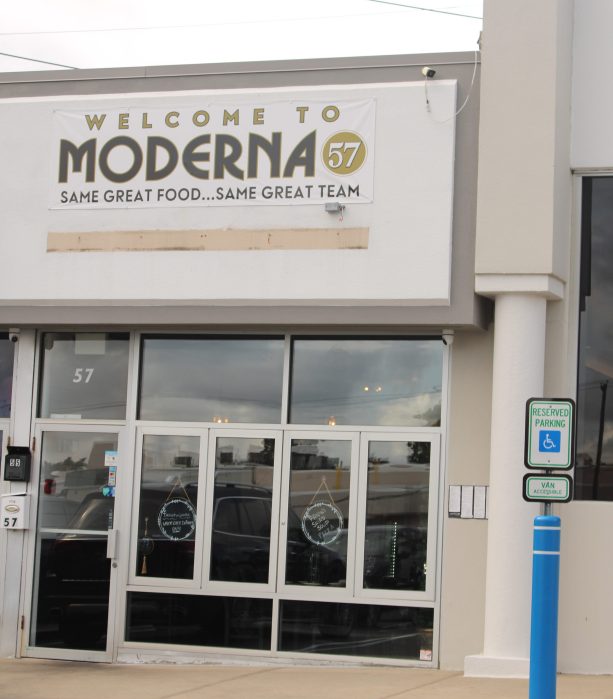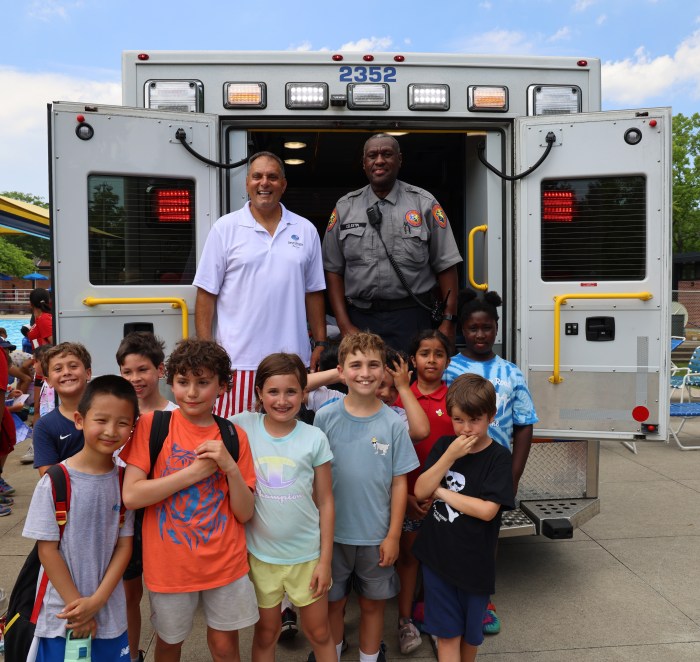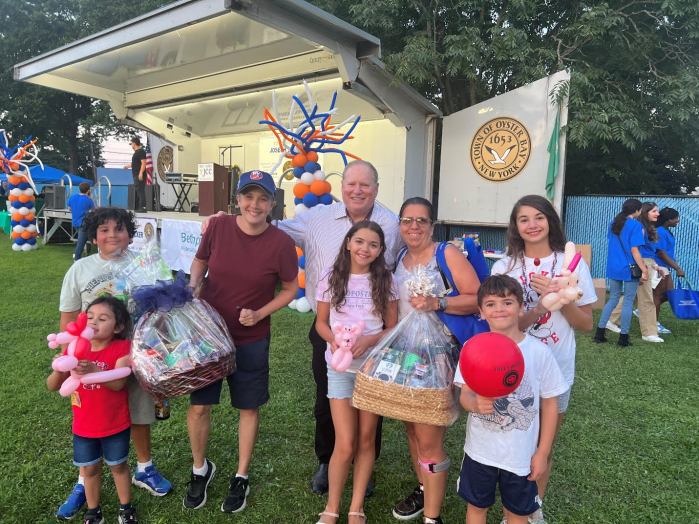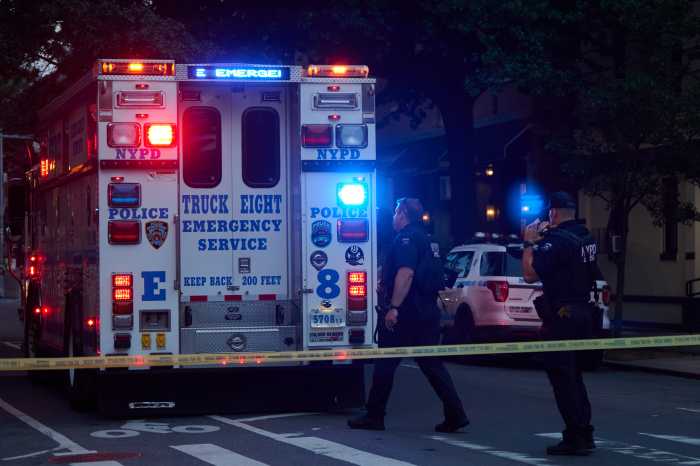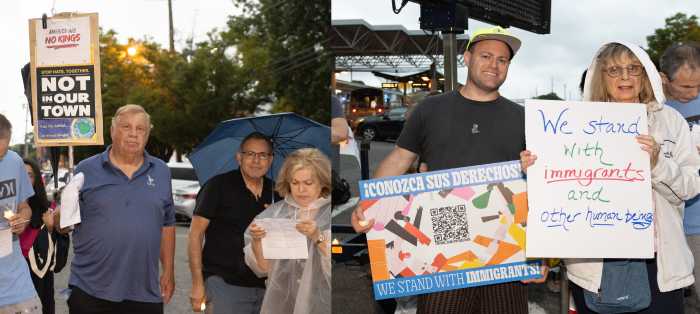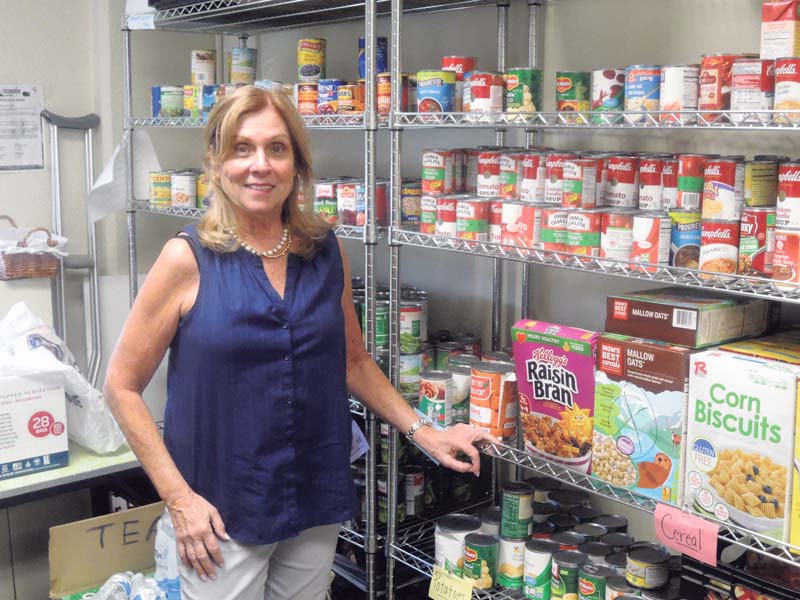
College food pantry battles student hunger
The U.S. Department of Agriculture (USDA) defines food insecurity as a lack of consistent access to enough food for an active and healthy life. It’s a need that the NEST, a food pantry located on the campus of Nassau Community College (NCC), has been addressing since it was founded back in September 2013. Currently housed in a 10×20-square foot room that has enough room for a fridge, a deep freezer and a couple of racks of shelves, the home base for the nonprofit is a vital resource serving the needs of the NCC)community according to Associate Director Helen Rice.
“The purpose of the NEST is to alleviate hunger on campus and for anyone who is connected to the school. So it doesn’t have to be a student. It can be faculty, it can be staff, it could be the security people, it can be the people who clean the bathroom or it can be the people who mow the lawn. As long as you have a connection and can come in and show something that connects you to Nassau Community College, you can use it,” she explained. “It’s a means of alleviating food insecurity and not just for the student. When they come in, we ask them about their families. So even if you’re not the head of a family, but if you say you have your mother, father, grandparents and a couple of siblings at home, then we give you more. We use the Long Island Cares food guide. It’s very general, but it’s a free choice pantry. What we do is have them go ahead and pick with these guidelines in mind.”
Founded by Professor Sharon Masrour, the NEST distributes roughly 1,000 pounds of food a week. As of early March of this year, 434 individuals have registered as guests with that number increasing every month. With guests having an average of four-plus family members per household, nearly 2,000 people are provided with food on a regular basis. It’s no mean feat given the fact that NCC’s only role is to provide a space for the food pantry to operate out of. It receives no funding and has established relationships with two major food banks (Long Island Cares and Island Harvest) in addition to working closely with students, staff, clubs, offices and departments to enhance involvement and ownership. Among the outside organizations the NEST has partnered with are Trader Joe’s, 7-11, the Boy Scouts, Girl Scouts, a number of faith-based and civic organizations including Rotary Clubs and even some sports teams. The need for what the NEST provides has grown to the point where the 11-person board was able to petition NCC to move into a space considerably larger than where the food pantry is currently housed. The future site has a bathroom and hopes are to have the NEST expand beyond being a mere food pantry. Goals include eventually having a washer/dryer and shower, a health room where students can receive flu shots and other medical information and a multipurpose room for workshops, seminars, demonstrations, meetings and the ability to host Narcotics and Alcoholics Anonymous meetings, prenatal counseling and HIV/STD testing through a possible partnership with local health providers and/or Planned Parenthood.
“It’s five times the size. It would be amazing. The reading department was housed over there and last year they shut it down for a complete refurbishment. We went down to the basement to see what was going on and we asked if we could have it from the college,” Rice said. “We’re a nonprofit and we are independent of the college. We have a Memorandum of Understanding (MOU) from the college saying they’ll house us and that’s it. But that’s all we need. We get the electricity and the people come in, clean, do pest control and everything that goes with it. But we are a separate entity. As soon as we knew that space was going to become available, we put in our bid and were told that would be fine and we could move in there.”
People who come in to use the food pantry come from a wide background. As such, volunteers are given extensive training and are expected to follow a code of conduct and sensitivity that prohibits them from questioning a client’s right to food distribution or preventing them from receiving food.
“Food insecurity doesn’t have a face,” Rice explained. “There was a woman who came in driving a very fancy SUV and picked up some stuff. Sharon was here and said she’d help her bring the food out to the car. The woman opened the back hatch and they were living in the back of the vehicle. There was the little bedroll and the little toilet for the child. Looking at her, driving around in the car, someone might say she shouldn’t be coming to a food pantry. I think with the economy the way it is and the cost of college, even though our tuition is more reasonable, many of our students say it’s either coming here or eating. Buying books or eating. Transportation to get here or not eating. So [the NEST] really serves a need.”
Visit www.nestncc.weebly.com to find out more information about the NEST




